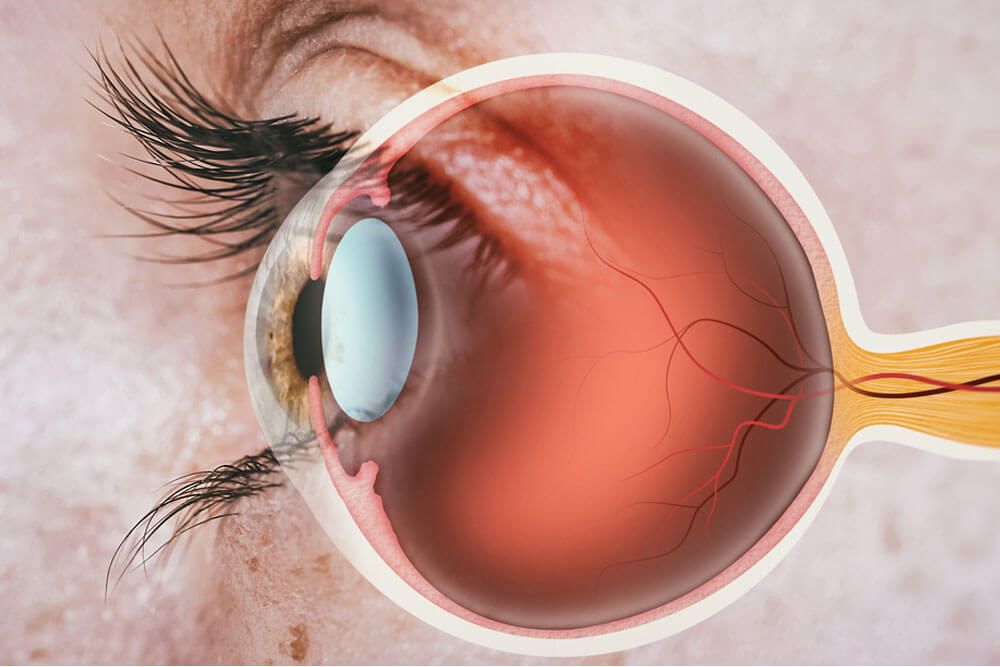The optic nerve is a vital part of the visual system, responsible for transmitting visual information from the eyes to the brain. When diseases or conditions affect the optic nerve, they can lead to severe vision impairment or even blindness if not promptly treated. At Colorado Eye Clinic in Greenwood Village, serving South Denver Metro, we offer advanced optic nerve treatments to manage conditions like idiopathic intracranial hypertension (IIH), optic nerve drusen, and optic nerve stroke. Our experienced team is dedicated to preserving your vision and enhancing your quality of life.
Understanding Common Optic Nerve Conditions
Optic nerve conditions can significantly impact vision. Here are some of the most common optic nerve diseases and their symptoms:
1. Idiopathic Intracranial Hypertension (IIH)
Idiopathic intracranial hypertension (IIH) is characterized by increased pressure inside the skull without a clear reason. This elevated pressure can cause swelling of the optic nerve, known as papilledema, leading to vision problems. Common symptoms of IIH include:
- Severe headaches, often worsening with eye movement
- Temporary episodes of vision loss or blurring (transient visual obscurations)
- Double vision
- Ringing in the ears (tinnitus)
If untreated, IIH can lead to permanent vision loss, making early diagnosis and management essential.
2. Optic Nerve Drusen
Optic nerve drusen are deposits of calcium and protein that accumulate in the optic nerve over time. These deposits can cause the optic nerve to appear elevated or swollen, often mistaken for papilledema. While many people with optic nerve drusen do not experience symptoms, some may develop:
- Progressive peripheral vision loss
- Transient visual disturbances
Optic nerve drusen are typically discovered during routine eye examinations and confirmed with imaging tests like optical coherence tomography (OCT) or ultrasound.
3. Optic Nerve Stroke (AION, RAO)
Optic nerve strokes, including anterior ischemic optic neuropathy (AION) and retinal artery occlusion (RAO), occur when blood flow to the optic nerve is interrupted, causing sudden vision loss. Key symptoms include:
- Sudden vision loss in one eye
- Painless vision loss (RAO)
- Vision loss upon waking (AION)
- Headache or scalp tenderness (AION)
These conditions require immediate medical attention to prevent further vision loss and manage underlying risk factors.
Advanced Optic Nerve Treatments at Colorado Eye Clinic
At Colorado Eye Clinic, we provide comprehensive treatments for various optic nerve conditions, utilizing the latest technology and personalized care plans to optimize outcomes for our patients.
1. Treatment for Idiopathic Intracranial Hypertension (IIH)
For IIH, our primary goal is to reduce intracranial pressure and prevent optic nerve damage. Treatments may include:
- Medications: Drugs like acetazolamide can help decrease cerebrospinal fluid production, reducing intracranial pressure.
- Surgical Options: For cases unresponsive to medication, procedures such as optic nerve sheath fenestration or cerebrospinal fluid shunting can relieve pressure on the optic nerve.
- Lifestyle Changes: Weight management and lifestyle adjustments are recommended, as obesity is a significant risk factor for IIH.
These treatments help reduce symptoms, protect vision, and improve quality of life for patients with IIH.
2. Management of Optic Nerve Drusen
While there is no specific treatment for optic nerve drusen, managing the condition involves regular monitoring and addressing any symptoms or complications. Our approach includes:
- Regular Eye Examinations: Routine check-ups and visual field testing to monitor changes in vision.
- Managing Complications: If optic nerve drusen lead to complications like choroidal neovascularization, treatments such as laser therapy or anti-VEGF injections may be recommended.
- Patient Education: Understanding the condition helps alleviate anxiety and encourages regular monitoring.
These strategies aim to preserve vision and prevent complications associated with optic nerve drusen.
3. Treatment for Optic Nerve Stroke (AION, RAO)
Optic nerve strokes require prompt intervention to minimize vision loss and manage underlying conditions. Treatment options include:
- Medications: Corticosteroids to reduce inflammation and blood thinners to prevent further clots.
- Ocular Massage or Anterior Chamber Paracentesis: In the case of RAO, these techniques may help dislodge blockages and restore blood flow.
- Long-Term Management: Controlling underlying conditions like hypertension, diabetes, and atherosclerosis to reduce the risk of future strokes.
Immediate treatment and ongoing management are crucial to preserving vision and preventing further optic nerve damage.
The Importance of Visual Field Testing in Optic Nerve Conditions
Visual field testing is a key diagnostic tool used to assess optic nerve function and monitor changes over time. At Colorado Eye Clinic, we utilize state-of-the-art visual field testing equipment to detect and track vision loss in patients with optic nerve conditions.
What is Visual Field Testing?
This test involves looking at a central point while lights of varying intensity flash in different areas of your peripheral vision. The patient indicates when they see the light, allowing the machine to map the visual field.
Why is it Important?:
Visual field testing helps detect early signs of vision loss, particularly in conditions like IIH and optic nerve drusen, where peripheral vision may be affected. Regular testing ensures timely adjustments to treatment plans, helping to protect the optic nerve and preserve vision.
Why Choose Colorado Eye Clinic for Optic Nerve Treatments?
At Colorado Eye Clinic, we are committed to providing comprehensive care for optic nerve conditions. Dr. Abed Namavari uses advanced diagnostic tools and personalized treatment plans to ensure the best outcomes for our patients. We prioritize patient education and are dedicated to helping you understand your condition and treatment options, ensuring you feel confident in your care.
We offer timely appointments and accept a wide range of insurances, including Medicaid, making high-quality eye care accessible to everyone in our community.
Contact Us Today
If you are experiencing symptoms related to optic nerve conditions or have concerns about your eye health, contact Colorado Eye Clinic today. Our team is here to provide expert care and help you maintain healthy vision.
Colorado Eye Clinic is conveniently located at 6021 S Syracuse Way, Suite 102, Greenwood Village, Colorado, 80111. Call us today at 720-667-3852 to schedule your appointment. Let us help you protect your vision with our specialized optic nerve treatments.

